Keywords: Attacks
There are more than 200 results, only the first 200 are displayed here.
-
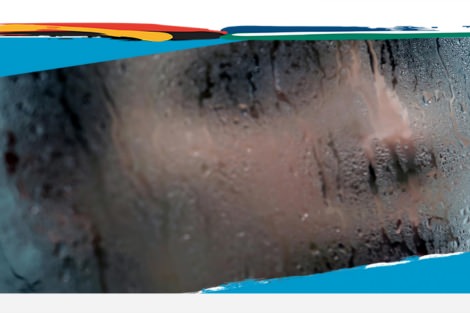
AUSTRALIA
- Esther Anatolitis
- 16 January 2017
3 Comments
2017 is set to be a momentous year for the arts in Australia. On 1 November we commemorate 50 years since Harold Holt announced the creation of an independent body to champion 'the free play of our cultural interests and enthusiasms at all levels' — an announcement that meant bringing together disparate focuses and isolated funds with a national vision. Yet today's Australia Council faces an uncertain future, and the free play of our cultural interests is jeopardised by that uncertainty.
READ MORE 
-
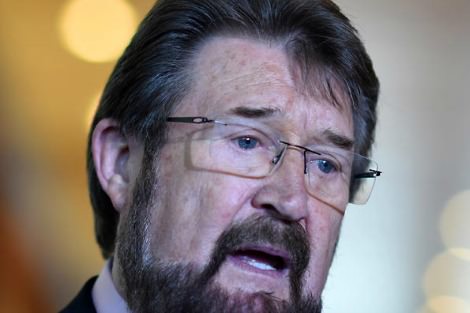
AUSTRALIA
- John Warhurst
- 05 December 2016
4 Comments
To say the Senate cross bench is a mixed bag is an understatement. All that is really lacking is an extreme left senator unrestrained by Labor/Green discipline. Amid all the controversy I've grown comfortable with their place in the Senate and appreciative of their collective presence in an otherwise party dominated chamber. They each have their flaws, but they make a generally positive contribution to public discussion and to ultimate legislative outcomes. We are better off for their presence.
READ MORE 
-

AUSTRALIA
- Binoy Kampmark
- 18 October 2016
2 Comments
The late Professor Desmond Ball of the Australian National University's Strategic and Defence Studies Centre came as close as any on being a public intellectual on nuclear strategy. While some of his counterparts in the US felt that using nuclear weapons was feasible and sound, Ball issued his pieces with mighty caveats. 'Controlling escalation', Ball ventured, 'requires both adversaries to exercise restraint, and current US policy is to offer a ... mixture of self-interest and coercion.'
READ MORE 
-
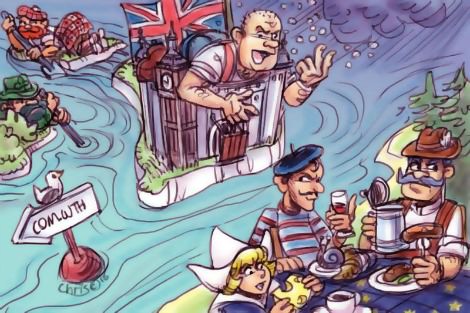
INTERNATIONAL
- Duncan MacLaren
- 07 October 2016
33 Comments
The new situation was rammed home to me in a recent trip to a conference in Salamanca, where there is a Scottish seminary, and Madrid, where I have Spanish friends. Everyone I met was shocked at the news and it was as if there had been a death in the family. On the flight back to Edinburgh, it became clear to me that the Brexiteers were about to take my European nationality away from me and replace it with a Little Englander mentality that sees foreigners through a prism of otherness
READ MORE 
-
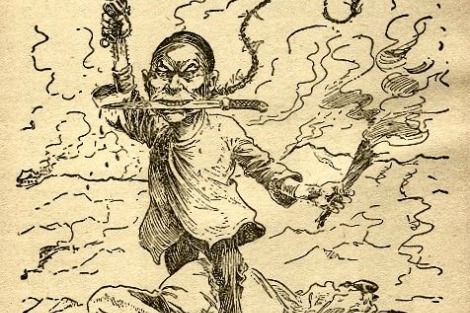
MEDIA
- Jarni Blakkarly
- 07 September 2016
2 Comments
China is out to undermine every aspect of the Australian way of life, from our Census to the integrity of our democracy. Any day now the red flag of the Communist Party will be flying over Parliament House in Canberra ... Or so, you'd be forgiven for believing. Chinese fear-mongering has hit a fever-pitch in Australia's media in recent months and the lines between genuine concern and sensationalism is becoming increasingly blurred. How can we make sure journalism keeps level-headed and fair?
READ MORE 
-
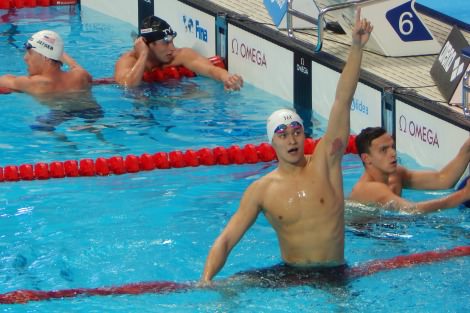
INTERNATIONAL
- Jeremy Clarke
- 17 August 2016
3 Comments
Horton desired to highlight the need for more stringent application of doping policies but in the process he enabled Chinese nationalists to bolster their inflated national pride, at his and Australia's expense. That he used his concern about drug use as a competitive tactic lessened its effectiveness, and only enabled Chinese nationalists to once more don the mantle of victim. Any chance for reform around issues like drugs in sport got caught in the wake of wounded egos and jingoistic pride.
READ MORE 
-
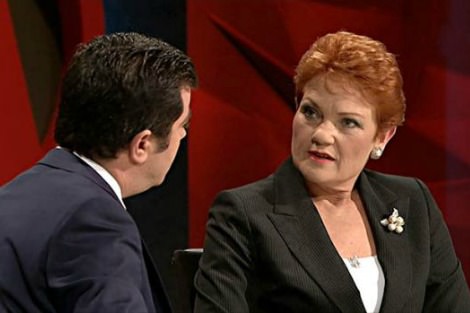
AUSTRALIA
- Kerry Murphy
- 11 August 2016
10 Comments
Recently I was discussing the election of Pauline Hanson and One nation senators with some Hazara clients. These clients are Pakistani Hazaras, who speak good English. They told me they are worried about what Hanson says. 'She seems very angry,' said Ali. 'She does not understand Muslims,' added Hussein. Hussein was recently getting his car fixed and was asked if he was a Muslim. He replied that he was. 'I could see the man's face change,' Hussein told me. The man had become angry and fearful.
READ MORE 
-
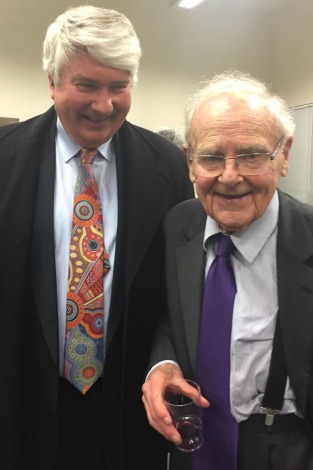
INTERNATIONAL
- Frank Brennan
- 26 July 2016
3 Comments
John traces the political ascent and descent of Sturzo whose first public office was as mayor of his own town. The chapter headings mark each step up and down the Everest of Italy's experiment with democracy and fascism: the emergence of political Catholicism in Italy; the dream takes shape; democracy without direction; democracy in decline; the search for a leader; the stick and the carrot; the voice of the watchman; and enter the night. Sturzo goes into exile; Mussolini takes over; and the Vatican is well pleased because the Roman Question is finally resolved in 1929 with the Lateran Treaties negotiated by Mussolini and Pope Pius XI, each of whom got what they were looking for.
READ MORE
-

ECONOMICS
Had Greece decided to exit the EU last year the consequences would have been far greater than Brexit, because Greece uses the euro, whereas Britain has the pound. British interest rates are not set in Brussels, they are set by the Bank of England. And it has an independent fiscal and budgetary system, to the extent that it is possible. The British government has been imposing 'austerity' measures because it subscribes to neoliberal orthodoxy, not because it is being told to do so by Brussels or Germany.
READ MORE 
-
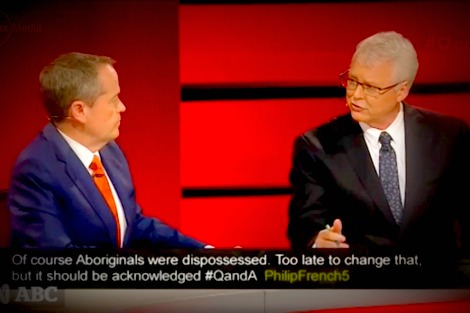
AUSTRALIA
- Celeste Liddle
- 22 June 2016
8 Comments
For the first time ever, I got the sense that political views on the importance of Indigenous issues had shifted. It was not due to an increase in Indigenous voices in the political discussions nor was it because either of the major parties announced a policy which I found remotely inspiring. Rather it was because, under the glare of the camera, the leaders of the two major parties both attempted to show a greater understanding of the Indigenous political agenda than they have before.
READ MORE 
-
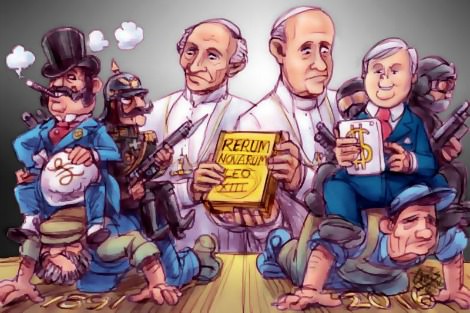
RELIGION
Pope Francis is determined to highlight the opposition of Christian social thinking to the tenets of neoliberalism or market fundamentalism, an ideology which assumes that free markets of themselves will produce the best outcome, and which pushes aside considerations of social or distributive justice. It is unlikely Francis would be waving the flag of social justice so boldly on the world stage had Pope Leo XIII not written his famous social manifesto, Rerum Novarum, 125 years ago.
READ MORE 
-

AUSTRALIA
Having worked in closed organisational systems like Victoria Police and various government departments, I have often reflected on how and at what point organisations and their employees become comfortable with the belief that their ideas and attitudes are better informed than those of the general populous - and that their survival is more important. A very stark example of this are the recent court decisions relating to the Hillsborough Stadium disaster in 1989, where 96 people were killed.
READ MORE 